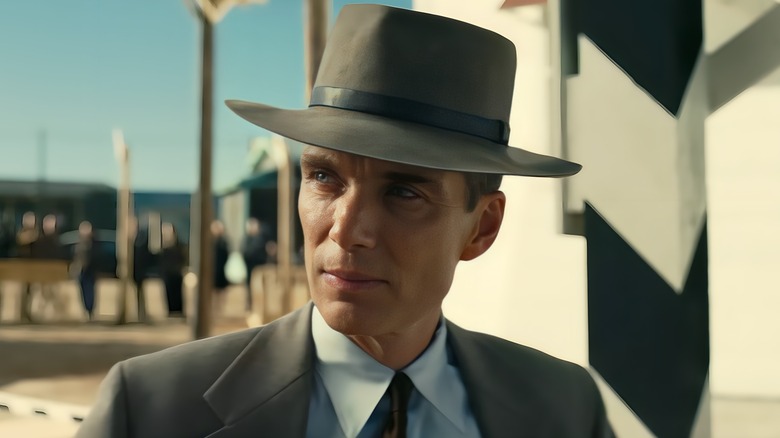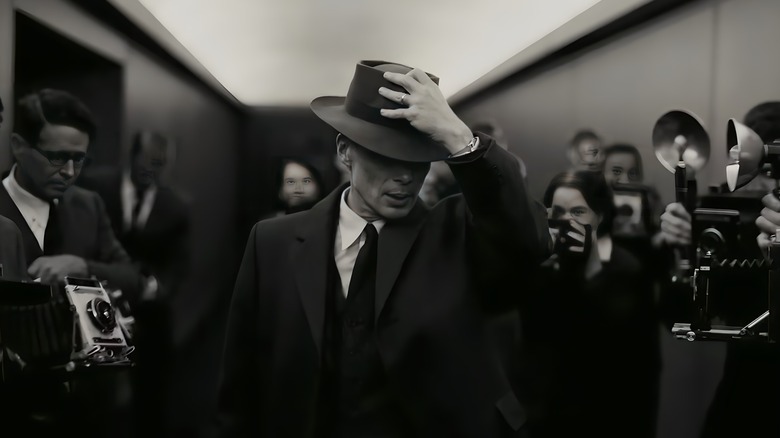Oppenheimer: Christopher Nolan On The Physicist's Similarities To Batman
"Oppenheimer" has all the makings of another Christopher Nolan classic. It had a superb showing at the box office during its opening weekend, taking in $82 million. Not bad for a three-hour historical drama that opened alongside a film about the most popular toy of all time. But at its core, it's still a Nolan movie through and through, with many of the director's trademarks, including a non-linear timeline and elaborate practical effects.
As such, it's easy to draw similarities between "Oppenheimer" and other movies within his filmography. Nolan himself is aware he's drawn to specific stories and characters, and while they may seem different on the surface, he believes there are core truths shared between J. Robert Oppenheimer and Bruce Wayne, a.k.a. Batman. While speaking with Bulletin of the Atomic Scientists, Nolan explained, "I've always been drawn to ambiguous storytellers, possibly unreliable narrators, people who have interesting layers—those are the characters, right? You know, back to Bruce Wayne, Batman, all the rest, I was interested in characters who in some sense are imprisoned by paradox, who are at the mercy of paradox."
In a way, it makes sense. Both Oppenheimer and Batman want peace, but they pursue violent means to achieve the ends.
I am become Batman
Many of Christopher Nolan's protagonists fall into the ambiguous camp. They're not fully good nor fully evil, from "Memento" to "The Prestige." They may want to do the right thing, but they may go about it in a manner audiences disagree with. However, "Oppenheimer" differs from these other stories because he's a real man. His paradox is noted in history books, so he was able to take viewers on a journey of how and why he developed the most destructive force in the world. There's something far more sinister at play when trying to determine how a real human being could do such things.
Nolan continued, "[For] my interpretation—and ultimately Cillian Murphy's interpretation of what's going on in his head, his interior state, which we're trying to represent—we've got a lot of information about where he went, how he got there, what he did." In a way, J. Robert Oppenheimer was a man of contradictions, as he was well aware of what could happen but pursued it anyway. Such contradictions are best exemplified early in the film when Oppenheimer poisons an apple, but realizing what he's done later, prevents anyone from actually eating the apple later.
The director concluded by saying how he studied the physicist's mindset to bring those contradictions to light: "In approaching Oppenheimer, my feeling was by researching, looking at what he said and what he did—where they're the same, where they're different—you start to get a sense of the contradictory impulses, and how he dealt with these impossible situations that he was put into." While Nolan is best known for superhero and science-fiction films, it turned out a true story would be the one where he could best explore the themes he's most interested in.

